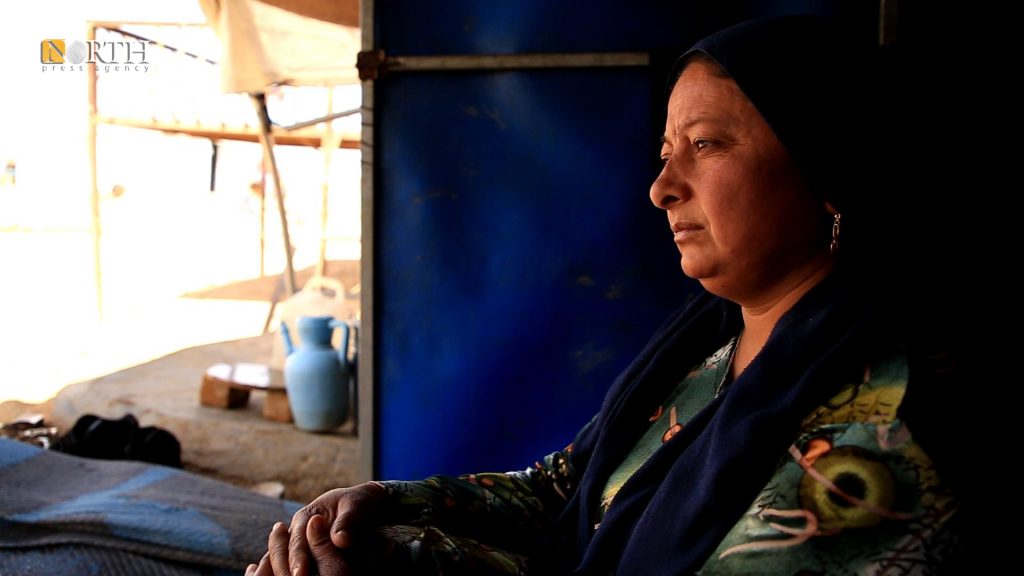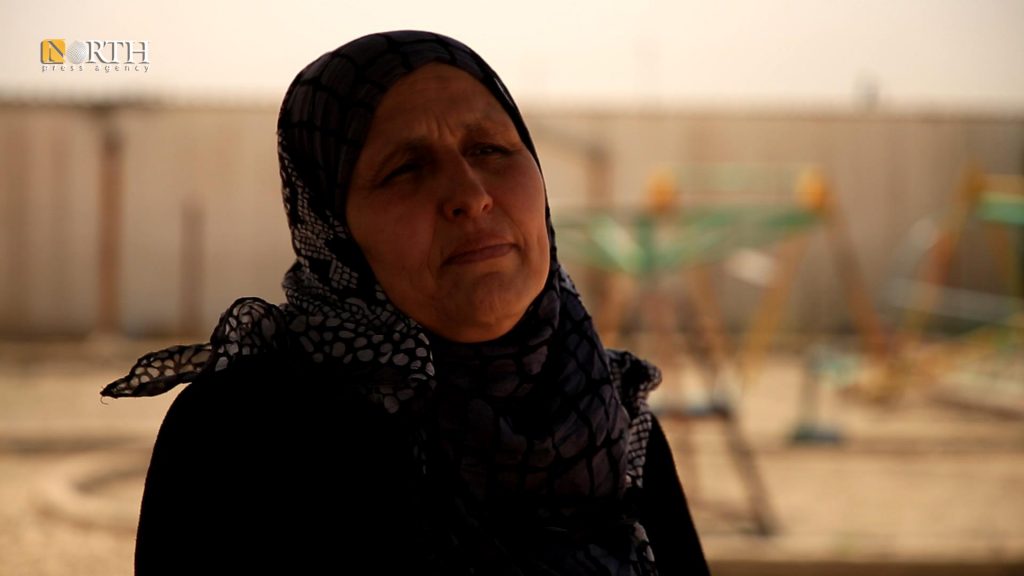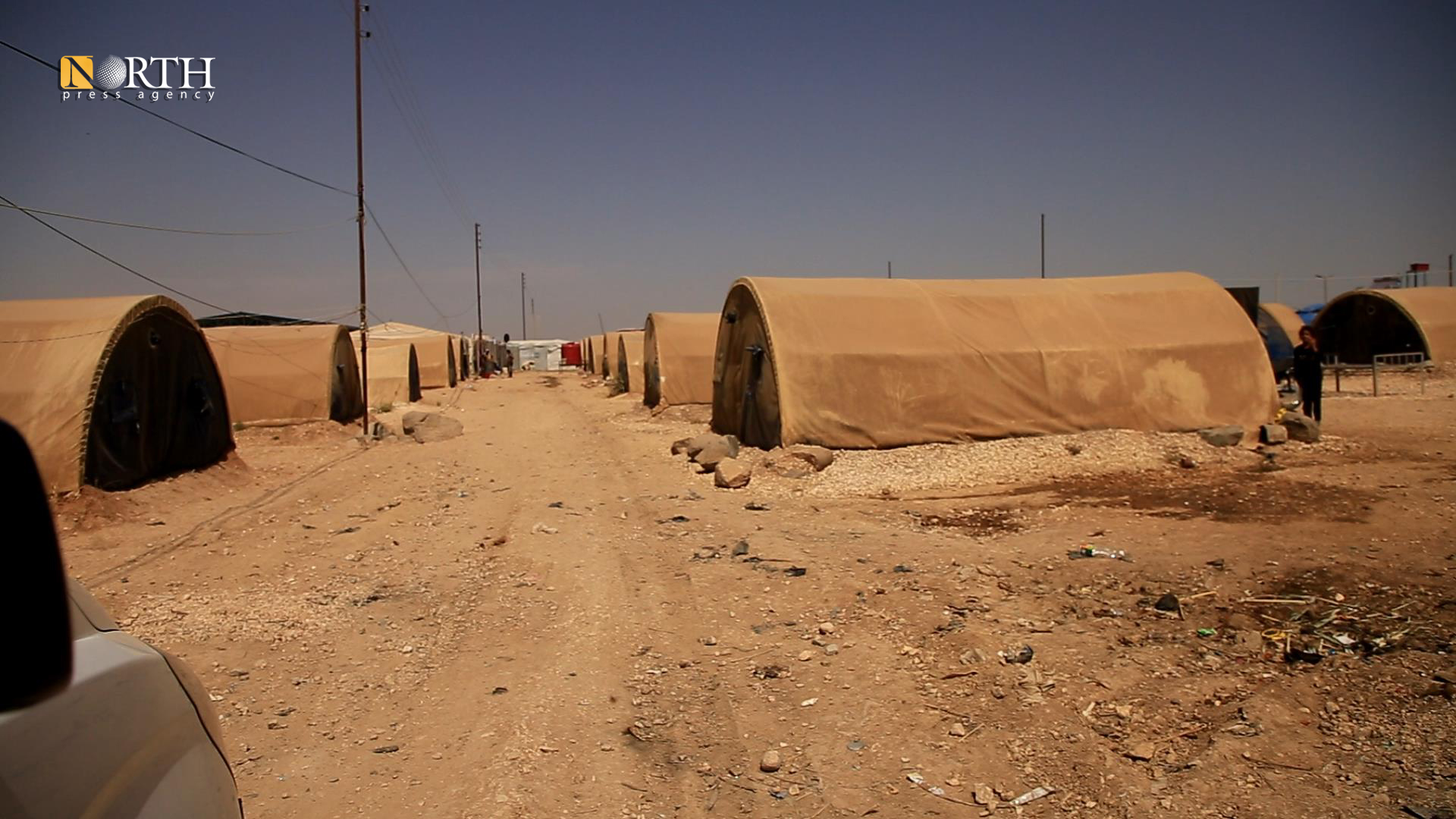HASAKAH, Syria (North Press) – Sitting in their tents in the suffocating heat, internally displaced (IDP) women from Sere Kaniye remember the joys of Eid al-Fitr holiday, which marks the end of the Ramadan fast for Muslims. What used to mark two days filled with gifts, food, and fun is now just another day for these refugees, displaced by a Turkish invasion and occupation of their homes.

Meysa Harun sits outside her tent, her eyes filled with tears as she remembers the Eid al-Fitr of years gone by. “Our Eid was so nice before; we used to visit our dead. We brought and read our Quran…but now, we don’t visit our dead. We go to the martyrs’ cemetery.”
Harun’s family has given 15 martyrs during the war in Syria, and in 2019 they, along with tens of thousands of others like them, were displaced when Turkey and their affiliated opposition groups invaded and occupied Sere Kaniye and Tel Abyad. Like many other families, they fled to the spartan Washokani Camp, which was built quickly for the waves of the displaced.
“It was happy and joyous. They went to visit their dead, returned, and made food, and visited each other. Now one visits one another…there is no Eid here,” she says.
Harun and her young children have no breadwinner after the death of the father and the martyrdom of Meysa’s son. She makes it clear that though they may consider themselves as such, she does not see the militant proxies who invaded her home as Muslims.
“How are they Muslims?” she questions. “They say ‘Allahu Akbar’ and ‘I am a Muslim’ and are Muslims? Islam is not just ‘Allahu Akbar,’” she explains. “Muslims must respect each other, and not fight each other. But they fought people, killed people, and did bad things…Islam is not with them.”
“May Erdogan never have peace,” she says plainly. “Not in this world or the next.”
35-year-old mother-of-five Iman Omar, a white headscarf wrapped around her face, talks of the suffering they experience at the camp.
During a typical Eid al-Fitr, parents will spend the days prior browsing shops and markets for new clothing and candy to bring joy to their children and cook a special, often expensive, meal to mark the breaking of the fast.
Omar has bought no clothing nor sweets for any of her five children, and can hardly do anything in the camp’s bleak conditions. She says she has no electricity or any way to keep cool as summer enters its peak.
“The Autonomous Administration has helped us a lot. It provided us with tents and other things,” she says, but adds, “we and our children are not happy anymore.” Omar voiced her hope to return to her home in Sere Kaniye by the next feast of Eid al-Adha.

Noura Khalil works as a facilitator in the camp, counseling and preparing games for the children there. “We have created this space to relieve children, yet they still feel sadness and pain,” she explained.
For the past two years, she says, Eid has been a sad affair, unlike those before it. Like every other person suffering in the camp, Khalil adamantly expresses her wish that one day everyone, including the children, will be able to return to their homes in Sere Kaniye and celebrate like they once did.

